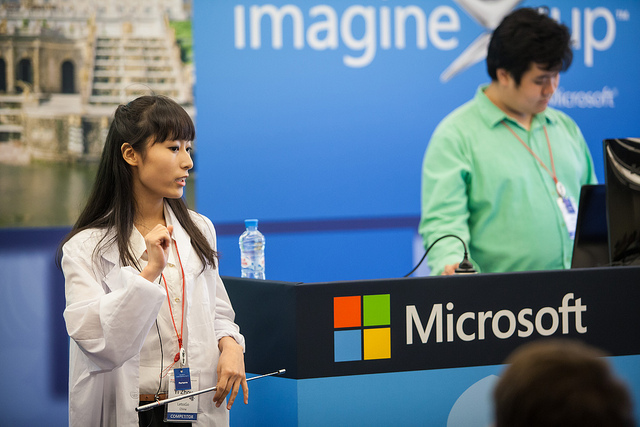 APPS
APPS
 APPS
APPS
 APPS
APPS
Microsoft Corp. has paved the way for Windows 10 in China after finishing a customized version of the operating system for government and state-owned businesses.
China has long been a problematic market for Microsoft. The market’s size is so enormous that no tech company can ignore it, but Microsoft has had to contend with numerous issues to make inroads there. These include widespread piracy of its Windows XP and Windows 7 operating systems, efforts by the government to replace Windows with a homegrown flavor of Linux, alternatives to Office such as RedOffice, and Windows 8 being banned for government use following Edward Snowden’s National Security Agency leaks.
In order to appease China’s government, Microsoft said in 2015 it was forming a joint venture with the state-owned China Electronics Technology Group, called C&M Information Technologies, in order to license Windows 10 to state-backed enterprises in the country. CETC owns a 51 percent stake in C&M, while Microsoft controls 49 percent.
“We have worked extensively to make it secure and controllable,” Alain Crozier, chief executive officer of Microsoft’s Greater China operation, told China Daily. “We are now ready to serve the market.”
Microsoft hasn’t said much about what changes were made to the Chinese variant of Windows 10 in order to win government approval. However, in September 2015, shortly after the joint venture was announced, the company insisted it would “maintain ownership of the core Windows 10 technology.”
China Daily says the customized Windows 10 comes with “tailor made security features.” Most likely, the OS is a custom image of Windows 10 with policy settings that are hard-coded for government users to prevent any snooping or hacking by Western intelligence agencies and other interested parties.
Microsoft will be hoping that the release will allow Windows 10 to make up for lost time in China. While the OS currently commands a 25 percent share of the personal computer market, according to the latest statistics from Net Applications Inc., its share in China trails far behind at just 9 percent.
The reason for that discrepancy is that China has taken a tough stance on foreign-made technology in the last few years ostensibly because of security concerns, mandating the use of home-grown technology as an alternative wherever possible. As such, most American tech firms have found that partnering with a local supplier is essential to do business there, as evidenced by IBM Corp.’s announcement this week that it’s partnering with Dalian Wanda Group Co. Ltd. to offer cloud computing services in China.
“Partnerships are currently a requirement if you want to do meaningful IT business with Chinese companies in China,” Patrick Moorhead, president and principal analyst at Moor Insights & Strategy, told SiliconANGLE. “This began about five years ago as the government mandated Chinese hardware and Chinese software be used in any federally funded projects.”
Microsoft’s customized Windows 10 won’t go on sale just yet however. According to the Wall Street Journal, China’s government still needs to review the software before it can be added to procurement lists.
THANK YOU